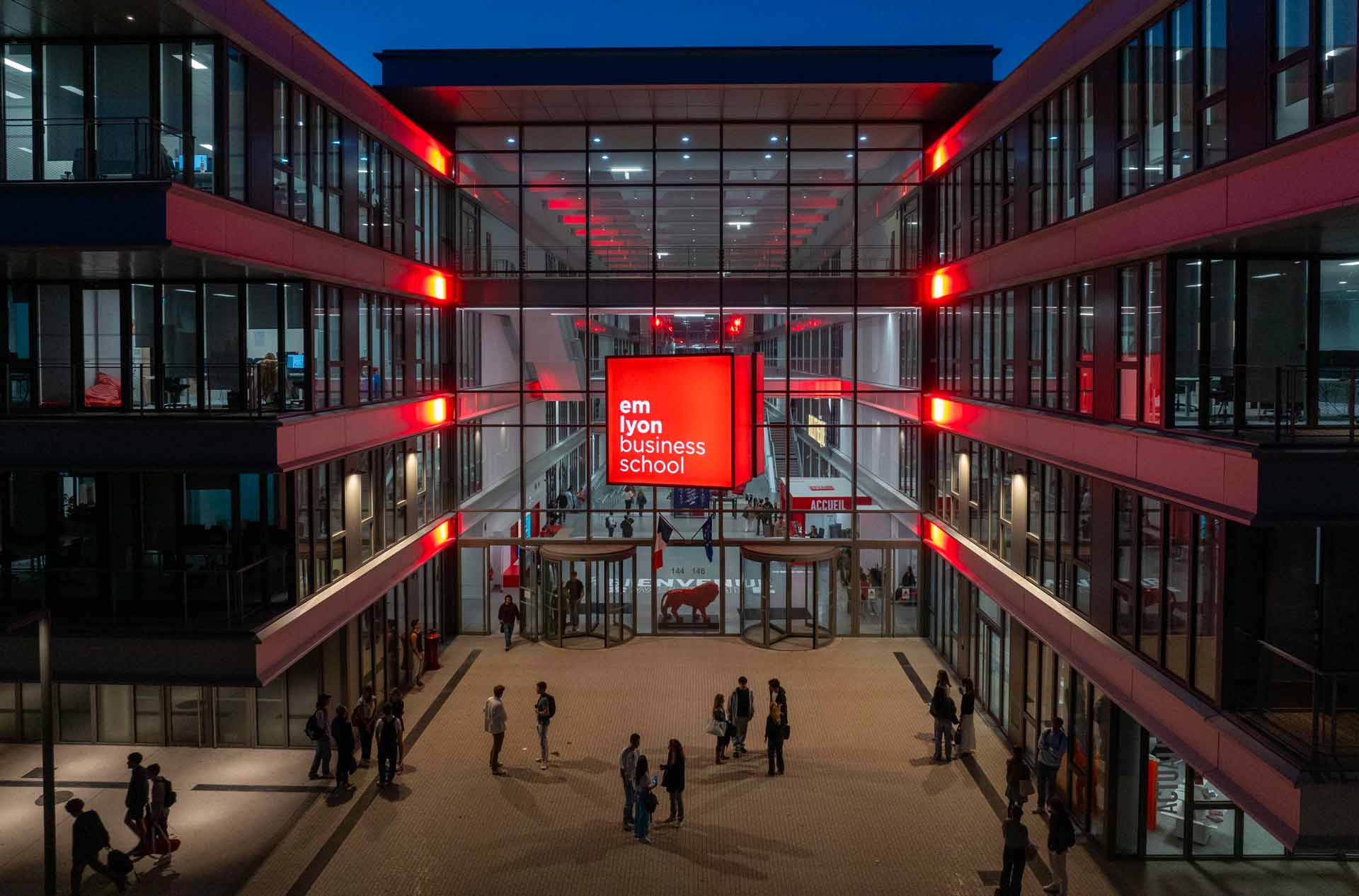Institution et gouvernance
emlyon business school est une école consulaire qui a adopté le statut de Société à Mission en 2021. La Présidence et le COMEX de l’École formulent et mettent en œuvre la stratégie. Le Conseil de Surveillance contrôle sa bonne exécution.
Une école consulaire & Société à Mission
La Présidence et le Comité Exécutif (COMEX) formulent et mettent en œuvre la stratégie, assistés d’un Comité de Direction (CODIR).
- Isabelle HUAULT : Directrice Générale et Présidente du Directoire
- Nicolas PEJOUT : Directeur Général Adjoint en charge de la Stratégie et du Développement
- Delphine BLAU-CORREIA : Directrice des Opérations et de l'Expérience Utilisateurs
- David BOCCALINI : Directeur Communication, Marketing & Recrutements
- Bénédicte BOST : Directrice de l'Engagement Social et Environnemental
- Sébastien LAURENT : Directeur des Ressources Humaines et Dialogue Social
- Aymeric LEBARON : Directeur Financier
- Mark SMITH : Doyen des Programmes
- Peter WIRTZ : Doyen Faculté & Recherche
Le Conseil de Surveillance veille à la bonne exécution de la stratégie de l'École.
- Guillaume Pepy : Président
- Yves Chavent : Vice-Président
- Myriam Bencharaa
- Benjamin Chabbert
- Jean-Charles Clément
- Philippe-Loïc Jacob
- Vincent Leroux
- Emmanuelle Malecaze-Doublet
- Sidonie Mérieux
- Agathe Dupin-Naton
- Antoine de Riedmatten
- Isabelle Adeline : Représentante du Comité Social et Economique
- Nicolas Badré : Censeur
Le Comité de Mission est composé de représentants des différentes parties prenantes de l’École, pertinentes au regard de la mission d’emlyon : experts académiques, étudiants, salariés, représentants des mondes socio- économiques et de la société civile.
- Nicolas Gueritte : Co-président du Comité
- Véronique Loctin : Co-présidente du Comité
- Inès Bazarbacha
- Françoise Dany
- Armand Hatchuel
- Marion Veziant-Rolland
Bénédicte Bost, Directrice de l'Engagement Social et Environnemental, et Manager de la Mission, assure la coordination du pilotage de la mission, en lien avec le Comité de Mission, les instances de gouvernance et les parties prenantes internes et externes d'emlyon.
Un actionnariat diversifié pour renforcer le développement de l’École
Les actionnaires d’emlyon business school sont :
- La CCI Lyon Métropole Saint-Etienne Roanne (51%)
Fondateur et actionnaire historique, c’est l’acteur majeur régional qui contribue au rayonnement économique du territoire.
- Galileo Global Education (47%)
Groupe d’enseignement supérieur privé français, le Groupe GGE apporte son expertise du secteur.
- BioMérieux
- Des collaborateurs et collaboratrices de l’École
